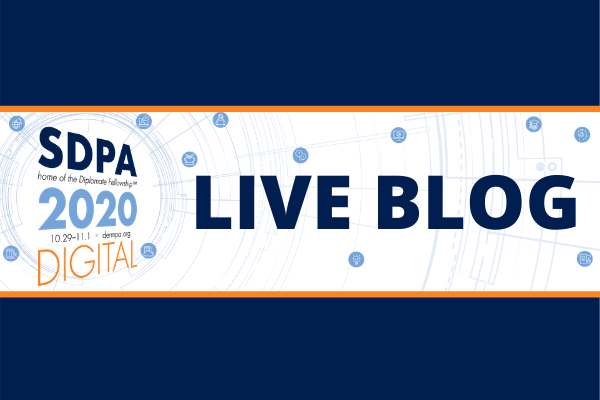SDPA DIGITAL Live Blog: Evaluating the Use of Supplemental Training Technologies in Dermatology Education
Mallory Aycock, MPA, PA-C, reviewed her research funded by the DPAF on the use of supplemental training in dermatology education of PA students. PA Aycock revealed there is a lack of data on dermatology training in PA schools, however, 50% of medical students receive 10 or fewer hours of dermatology training with 8% of medical school programs without any dermatology training. With that, studies have shown medical students do not feel they are proficient in the diagnosis and treatment of dermatologic disease even after 18 hours of training.
Ms. Aycock reviewed the increased use of dermoscopy in the US. Training in dermoscopy has revealed an improvement in the diagnostic accuracy and improved biopsy rates in those who are proficient. Only 6-8% of primary care physicians in the US currently utilize dermoscopy versus other countries where the rate is close to 40%. PA Aycock reveals her goal is to provide dermoscopy training to all PA students as PAs will evaluate dermatologic complaints in any field of medicine they practice. She reports that as little as 1-10 hours of dermoscopy training can increase the confidence of dermoscopy use of providers.
Ms. Aycock states “we can’t realize an EKG is normal until we have seen several of them” emphasizing that medical practice requires pattern recognition through gained experience. It has been shown that online perceptual and learning modules increase mastery of skills through pattern recognition. These programs can adapt to learners to improve weak performance and gain overall mastery of concepts. Ms. Aycock utilized one of these online programs (PALM) as a supplement to the traditional lecture in her PA teaching of dermatology. The findings revealed improvement in fluency and accuracy of identifying skin conditions. Students agreed these modules helped their ability to interpret skin lesions and their ability to care for patients with dermatological complaints. When asked, the majority of students agreed these supplements should be an added part of the curriculum.
